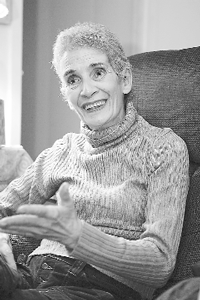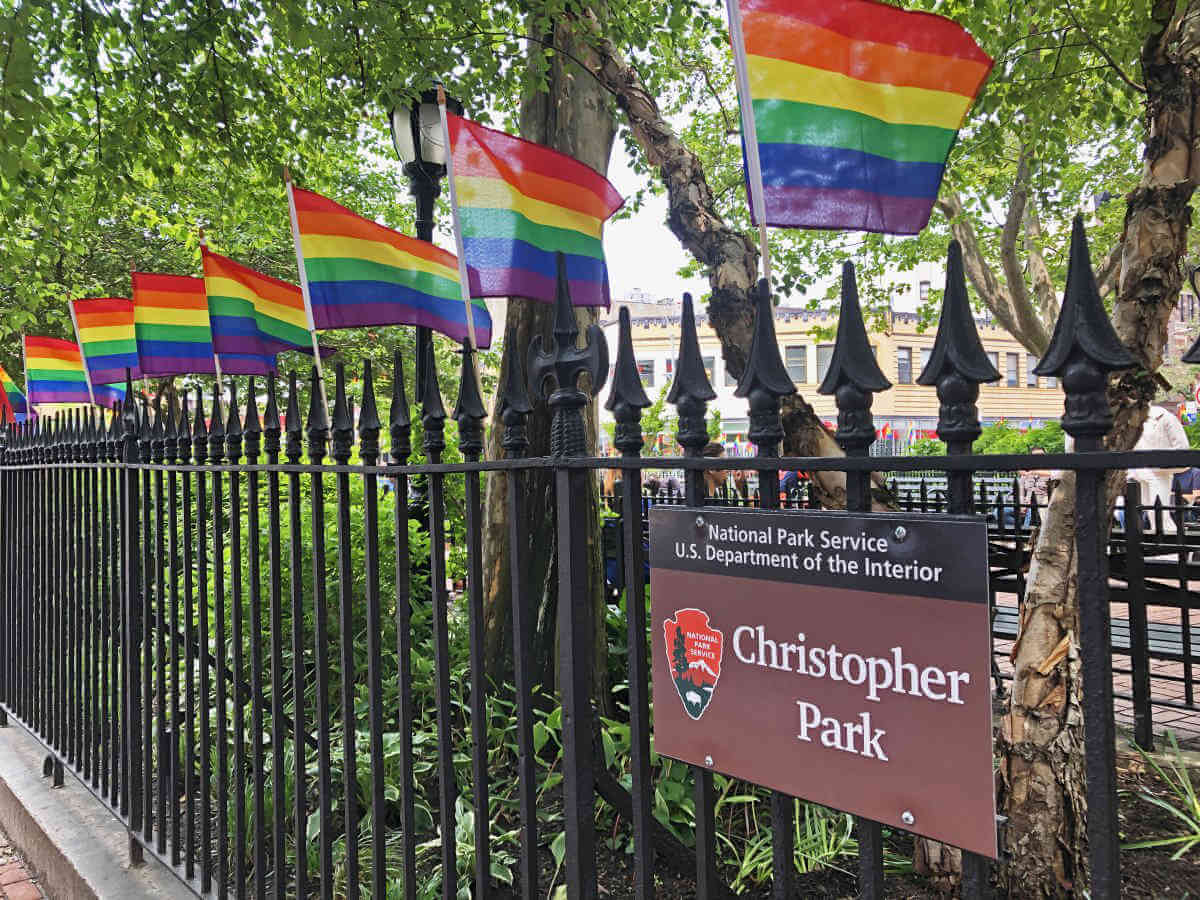By Caitlin Eichelberger
A humble studio apartment on Harrison St. hints that it is home to a writer: bookshelves packed with poetry anthologies line the walls, file cabinets brimming with clips create makeshift nightstands and a quiet typewriter rests in the corner.
Like her apartment, 70-year-old Mildred “Mimi” Cavallo, who has written hundreds of poems since she was a child, is modest. The poetry crafted by the slight, soft-spoken woman, however, is surprising and provocative. And these days, though the fluidity of her words are now only those written, she is still as sharp as her deep, slate eyes.
“She should have been famous,” said Joyce Perciaccanto, Cavallo’s sister. “She is gifted, she didn’t even have to go to school. She had a command of the English language very early.”
Friend and poet John Ratti, who has been published in The New Yorker magazine, referred to Cavallo as a “sort of child prodigy” in a telephone interview. “She was noticed by people early on.”
But at 15, Cavallo’s 15 minutes of fame may have already come and gone. In 1951, Cavallo was invited to appear on “The Nick Kenny Show,” an early 1950’s talk show, as the poet of the week to read her original poem, “Daddy,” to a national audience. “A terrible poem,” Cavallo recalled. The poem — selected over countless submissions and written about her father who died earlier in the year — began, “I remember his smile so tender and warm.” Perciaccanto recited the line over 50 years later without hesitation.
Cavallo, born and raised in New York City, attended Julia Richmond High School on Second Ave. At Julia Richmond, Cavallo made lifelong friends who ignited her lifetime passion for poetry. Ninth grade English teachers, Mrs. Kirsch, Mrs. Kang and Mrs. Jacobs, encouraged and critiqued Cavallo’s earliest pieces, publishing several in the school newspaper.
“They were my biggest fans,” Cavallo said. “I loved my teachers in school. I was friends with them until they died.”
Through her adulthood, Ratti, who worked with Cavallo at the Episcopalian Church on 43rd St. and 3rd Ave. during the civil rights movement, was another source of encouragement and advisement. Any magazine that he became involved with, he said, he would give Cavallo tips about publication.
Most of her work, however, remained unpublished, and her largest audience came to be senior adults of the Caring Community at Independence Plaza North, where she lives. After her first aneurysm in the late 1990s, the “Reading with Mimi” program doubled as a rehabilitation exercise for the poet.
Cavallo, however, no longer reads to the seniors. She has suffered four more aneurysms since, totaling five in almost as many years. The aneurysms and subsequent surgeries have slowed her speech and fine motor skills. Typing, even though she always preferred to write longhand, is not possible, and recalling dates is difficult. However, when it comes to her poetry, Cavallo said, “I haven’t forgotten.” When talking about writing, her face first illuminates but then befalls with frustration, unable to match the speed of her speech with her enthusiasm for the subject.
“I have trouble [writing] now, with the operations I’ve had up here,” Cavallo said, motioning to her head. “I tried to write, and I have written, and maybe it will come back.”
Perciaccanto explained that it is harder for her sister to be creative following her surgeries. “But look at all you’ve got,” she said to Cavallo in her apartment, gesturing to the files of poetry.
The poetry tucked away is accessible to the common reader, concentrating on concrete people and places, but all the while delving deep into the human psyche conquering themes of rape and child abuse. Cavallo said she always wrote from someone else’s perspective and in a style that “people can understand, so they don’t say ‘what does this mean?’ ”
Cavallo wrote during the heyday of the beat generation, but according to Ratti, she had a voice of her own.
“She had an unusual voice, in that it went back and forth being very romantic and then startling modern,” Ratti said. “She belonged to no school of poetry, no one ever told her not to be herself.”
Being herself, like many poets, has not translated into fame and fortune. Cavallo joked that she has made maybe $20 through her writing. She has had select pieces published in The Book of Knowledge and The New York Quarterly among other small publications over the years.
“To any of us moving along at that time, unless you were willing to be very pushy . . . and be a press agent for yourself, you never got beyond a point. Mimi suffered from that, she wasn’t in a position to go out and promote herself,” Ratti said. Cavallo’s resiliency could provide him with a lesson, he added. “She’s never lost her edge.”
Today, Cavallo says she feels “great.” She enjoys reviewing her pieces, and focusing on her latest poem about a deceased family cat named Poo.
google_ad_client = “pub-6226499064891091”;
google_ad_width = 468;
google_ad_height = 60;
google_ad_format = “468x60_as”;
google_ad_channel =”0606561524″;
google_color_border = “336699”;
google_color_bg = “FFFFFF”;
google_color_link = “0000FF”;
google_color_url = “008000”;
google_color_text = “000000”;
//–>
src=”https://pagead2.googlesyndication.com/pagead/show_ads.js”>
Mildred “Mimi” Cavallo in her Independence Plaza apartment
WWW Downtown Express



































